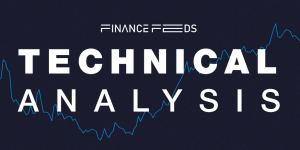Consensus 2023 interview: Foxify CEO on P2P trading, Tyson Fury sponsorship
The crypto community wrapped up Consensus 2023 several weeks ago, marking the end of three days filled with discussions around the digital asset space. Catch up on some of FinanceFeeds’ interviews with the key CEOs, innovators, and personalities that are shaping how the industry continues to unfold.

Today, we have the opportunity to speak with Danny Winn, CEO of Foxify. Launching in June 2023, Foxify is an innovative crypto trading platform, merging the simplicity of CeFi with the security and freedom of DeFi.
In this interview, we’ll discuss Danny’s leadership approach, Foxify’s goals and challenges, and the broader industry landscape.
We kicked off our conversation by asking Danny how Foxify will be the first truly decentralized peer-to-peer trading platform, as they claim in their public announcement.
Danny explained that although most platforms that offer decentralized perpetuals have a smart contract infrastructure, they still rely on some off-chain services to execute certain actions, such as market order triggers. However, with Foxify, there is no reliance on anything off-chain (on the Options side). Foxify Options are entirely peer-to-peer, as everything from the price oracle to the escrow and the trading is done entirely on smart contracts. Foxify Perps does require some off-chain services.
Elaborating on the OptiTrade technology that Foxify uses to make decentralized trading more accessible, Danny said that most of the trading volume within the crypto industry is hosted by centralized exchanges, which has more external risks than decentralized ones, whilst DeFi generally has a more complex user experience. The latter requires users to create wallets, understand gas fees, and manage seed phrases. These are the barriers that prevent more people from using decentralized finance. OptiTrade Technology simplifies the whole process by allowing users to create noncustodial wallets with their email, on-ramp with their Google Pay or Apple Pay account, and allows for a gasless experience (gas is managed by smart contracts in the background), making the trading experience much easier. This is how they bridge the gap between centralized and decentralized finance.
“So, let me give you some background. You see, last year, $11 trillion worth of crypto was traded on centralized exchanges. That’s where the volume is, and volume matters, right? But why do people trade there, when they could switch to decentralized exchanges, which have less custody risks? Well, the answer is that decentralized exchanges are too complicated for most people. You have to create a wallet, understand gas fees, remember seed phrases, and deal with all the hassle of DeFi. That’s why our technology is so innovative. It simplifies the whole DeFi experience on top of its infrastructure. You just go to the Foxify platform, create an account with your email, and get a noncustodial wallet that sends your seed phrase to your email. Then you can fund your wallet with your Google Pay or Apple Pay account, and trade without worrying about gas fees, because the smart contract manages them for you. Then it’s a much easier way to trade on DeFi.”
The response suggests that Foxify seems like a combination of traditional finance (TradFi) and decentralized finance (DeFi).
Danny agreed with our conclusion, adding that Foxify has a very easy and familiar user interface, but without the risk of losing funds to a centralized platform. The platform offers a centralized customer experience on top of a decentralized infrastructure. So, they offer the best of both worlds: the safety of decentralization and the convenience of centralization.
“If you look at the way Foxify works, you land on the platform, and you use the same identity and financial tools that you use on other platforms. But the difference is that Foxify doesn’t have custody of your funds. They are stored in a decentralized way, which is safer. So you have this centralized user experience on top, and this decentralized security underneath. And that’s what traders are looking for.”
Foxify’s approach seems advantageous from a usability and customer experience perspective, as there are many stumbling blocks to mass adoption of decentralized exchanges. In this context, Danny highlights that their recent research found that the biggest concern for traders was the solvency of the platform they’re using, rather than fees, user experience, or customer service. Losing funds due to platform insolvency is a significant risk for traders, especially for those who have spent years learning and mastering their craft. By providing a user-friendly experience with the safety of DeFi, Foxify aims to remove this barrier to entry and make decentralized trading more accessible to everyone.
“That’s a very important point. We’ve done a lot of surveys with traders of all kinds and sizes. And the biggest worry they have is not about fees, user experience, or customer service. It’s about the platform they use being solvent. Because you can spend decades learning how to trade well, but if one day your platform disappears, you lose everything. And there’s not much you can do about it. So you’re right, if we can offer the convenience of a centralized platform with the security of a decentralized one, we can remove the main obstacle for people to switch to decentralized trading.”
From a traditional trading perspective, options are a complex financial instrument, as they involve many parameters such as strike prices and expiration dates. We asked how Foxify allows traders to set their own terms on options contracts, and which terms are available for them to customize.
Danny said that they want to make the user experience simpler and more intuitive, by reducing the jargon and making the options more understandable. On Foxify, users could provide liquidity on options that are based on simple scenarios, such as whether the price of ETH would go up or down by a certain amount within a certain time frame. This way, users could easily grasp the concept and the risk of the options they trade. This simple model can be also applied to options trading across commodities, stocks, forex, indexes, and any tokenized asset.
Foxify CEO further explains that creating a marketplace with peer-to-peer trading does require a large number of users to create liquidity in the market. There are solutions to this challenge though. Firstly, peer to peer trading does not necessarily mean person to person. It can also mean peer to contract or peer to market maker. This means that instead of trading directly with another person, users can trade with a smart contract or market maker who provides liquidity to the market.
Another solution is to incentivize users to provide liquidity to the market by offering rewards or benefits for doing so. This encourages more users to participate and provide liquidity, which in turn creates a more vibrant market.
Ultimately, building a successful peer to peer marketplace requires a combination of factors, including a user-friendly platform, reliable infrastructure, effective marketing, and a strong community of users who are incentivized to participate and contribute to the market’s liquidity.
So, if you’re trading with an exchange or retail brokerage, you are trading with a peer, we asked.
In summary, while traditional markets don’t have true peer-to-peer trading, they do have a similar model where exchanges or brokers act as intermediaries between makers and takers. Similarly, Foxify employs an open model where anyone can be on either side of the trade to allow for a more decentralized and democratized trading experience.
Danny gave an example of Robinhood and Citadel, where Citadel acts as the maker and Robinhood’s users act as the takers. Foxify has a similar model, where they allow institutional, semi-sophisticated, and retail traders to join the platform. The difference is that Foxify do not restrict who could be on the maker or the taker side of the trade. Anyone could be on either side, regardless of their level of sophistication.
We asked how Foxify ensures the security of peer-to-peer trading, given their findings that crypto traders and investors are more worried about hacking and scams.
Danny explains that the first and foremost thing was to design a non-custodial system, where the funds of the traders are locked in a smart contract that uses an independent oracle to determine the outcome of the option. The smart contract could only release the funds to the winning trader. As such, it was important to have a mature and experienced team that produced smart contracts audited by major firms. They also have independent auditing from reputable companies.
Transactions in cryptocurrency can be done almost instantaneously with complete anonymity, making it a challenge for compliance staff and regulatory bodies. This has led to the introduction of crypto-specific regulations, such as the ‘Travel Rule,’ which requires virtual asset service providers to collect and share customer information during transactions that exceed a certain threshold.
Foxify CEO addressed this point. He believes that if a platform provides a financial product or takes custody of funds, they have then a higher level of responsibility and must comply with the regulations. That said, Foxify is different, as they don’t take custody of funds or offer any financial product. They only provide a smart contract service to enable speculation between parties, and the market sets the rate. This makes them less vulnerable to the “travel rule.”

During our interview, we brought up the recently-approved Markets in Cryptoassets (MiCA) legislation in Europe, which will impose a number of requirements on crypto platforms around transparency, disclosure, and supervision of transactions.
In his response, Danny noted that while the European Union seems to have everything in order when it comes to crypto regulation, the US still has many open questions, and there’s a lot of regulation by enforcement happening there.
In his opinion, it would make sense for the US authorities to learn from the MiCA regulations. But in fact, there is still a lot of uncertainty and ambiguity around crypto regulation in the US. He also expressed disappointment that the UK, a country built on being forward-thinking and pro-innovation, is so far behind other countries in terms of crypto regulation.
Danny thinks that any business wants clarity more than anything else when it comes to regulation. However, MiCA regulations do not apply to Foxify, as they are an offshore organization registered in BVI. Still, they have to consider any markets that might interact with their services.
Towards the end of our conversation, we asked about Tyson Fury, the world heavyweight champion boxer, who is a partner in Foxify.
Danny confirmed that they had a long-term partnership with him. Foxify signed him early on, as they wanted a global athlete who has a worldwide reach. Tyson participated in live streams and other events, and they are sponsoring his fight kit in the next world heavyweight champion, which allows Foxify brand to be seen by hundreds of millions of people.
Find out more about Foxify: https://foxify.trade









